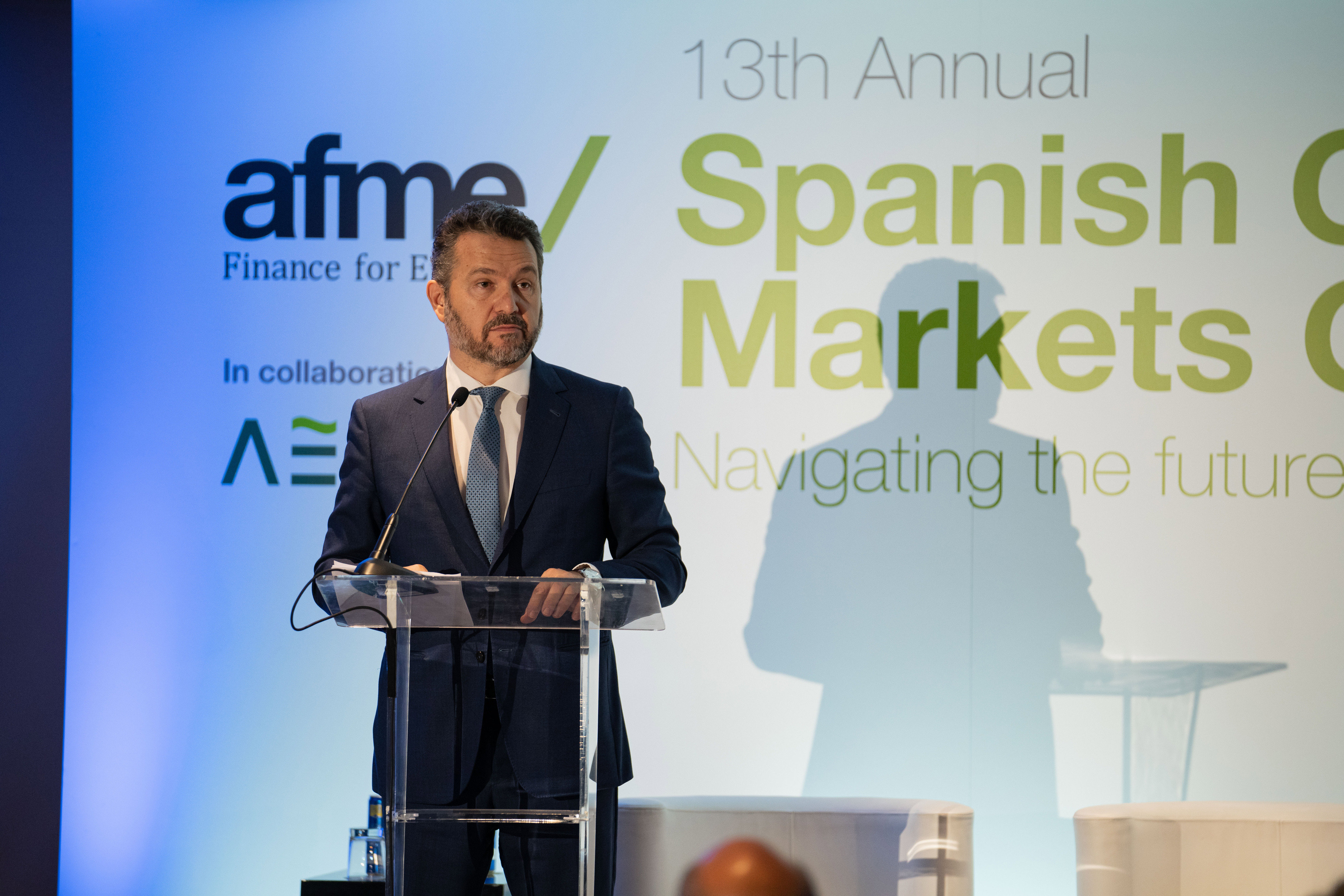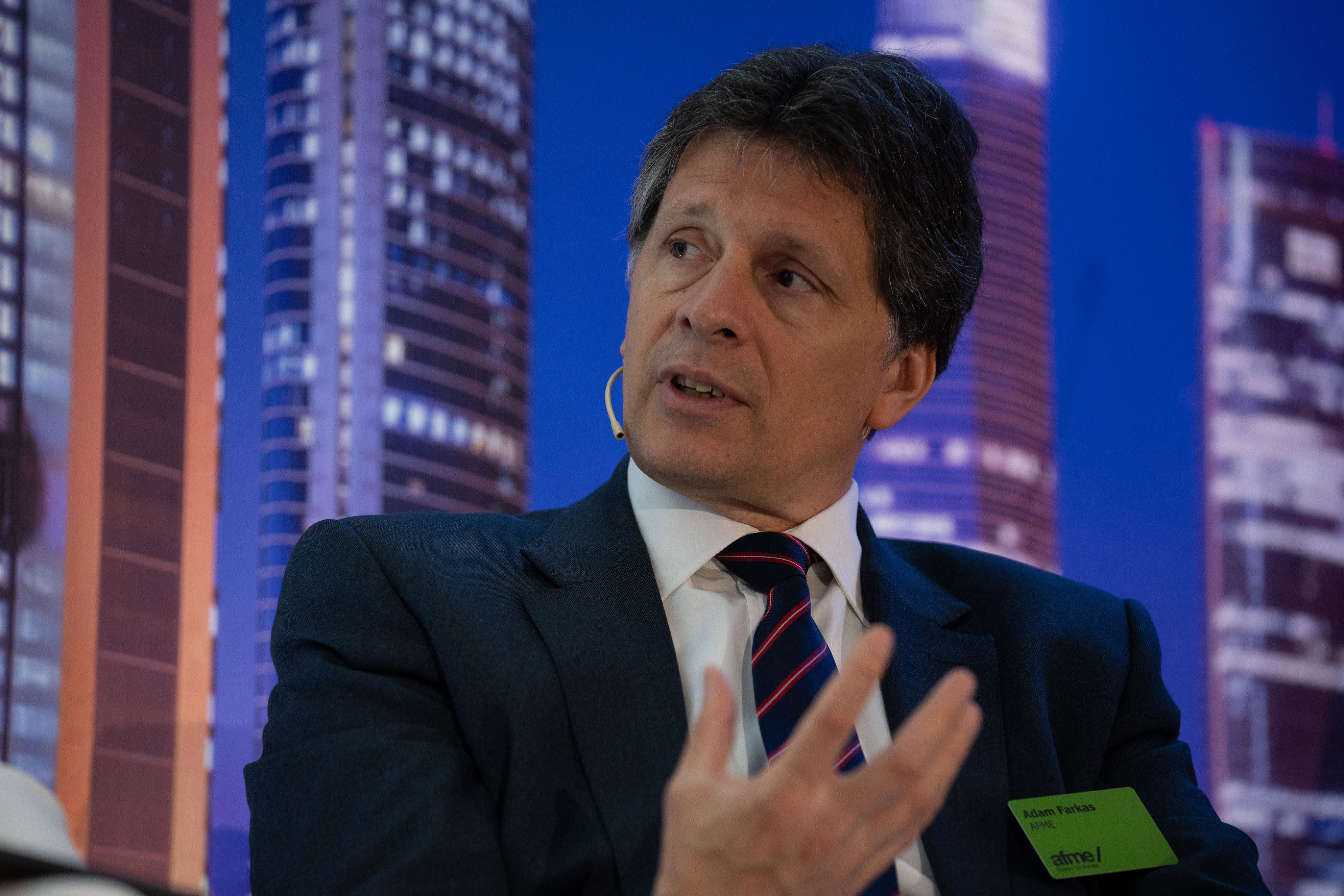
AFME returned to Madrid this year for the 13th time to host its annual Spanish Capital Markets conference, in collaboration with the Spanish Banking Association, AEB. The event brought together speakers and delegates from across the capital markets with panels centred around the need to strengthen the competitiveness of European and Spanish capital markets.
The unfavourable macroeconomic environment created by the Russian invasion was much discussed, demonstrating how important it is for capital markets to have enough liquidity to protect Europe against future challenges. Further, speakers discussed how the current geopolitical tensions have revealed to what extent Europe is reliant on gas, providing opportunities for economies to follow a faster path toward renewable energy. For sustainability procedures to be successfully put in place in the next decade, the European Commission estimates that around 350 billion Euros each year will be required. But, this amount of money cannot solely be raised through traditional financing, such as bank loans, but will require a unified response from European capital markets.
At SCM, many speakers saw the solution as the Capital Markets Union (CMU), launched by the European Commission in 2014. The CMU has three goals – for new companies to have an easier time to access capital markets to accelerate growth and support the European economy; to improve long-term profitability of savings for an aging generation by making the market more viable for retail investors; and third, improving the diversification of financing sources through encouraging more equity-based financing of companies. The latter would lessen the reliance on bank credit in the future.

One of SCM’s keynote speakers, Rodrigo Buenaventura, Chairman at the Spanish National Securities Market Commission (CNMV), expressed that Spanish stock markets, for example, need to boost the number of companies listing in Spain. Comparing the Spanish stock market to an inverted pyramid, Mr Buenaventura described the top of the pyramid with around 130 listed companies on the main regulated market, while the Growth market, also called the SME stock market, only has 50 listed companies at the bottom. The regulated market has the strictest obligations and regulations, while the Growth market has significantly lower but yet still prudent requirements and centres on developing and growing companies. While more companies are joining the growth market every year, Mr Buenaventura called for faster progress to ensure Spain remains competitive.
The CNMV Chairman concluded that to aid companies to scale up, EU capital markets need to be fostered further. However, to achieve this, a delicate balance needs to be struck. Complete deregulation, which could bring unintended consequences, needs to be avoided, but lowered listing requirements, quicker access to markets and fewer information constraints for investors need to be supported. For EU capital markets to be successful, all stakeholders need to be involved. The Listing Act is an example of how this can function. The purpose of it is to make capital markets more competitive by attracting EU corporations and helping SMEs find funding. Although the Listing Act is promising step in the right direction towards a unified capital market, the general consensus at SCM was that more needs to be done.




